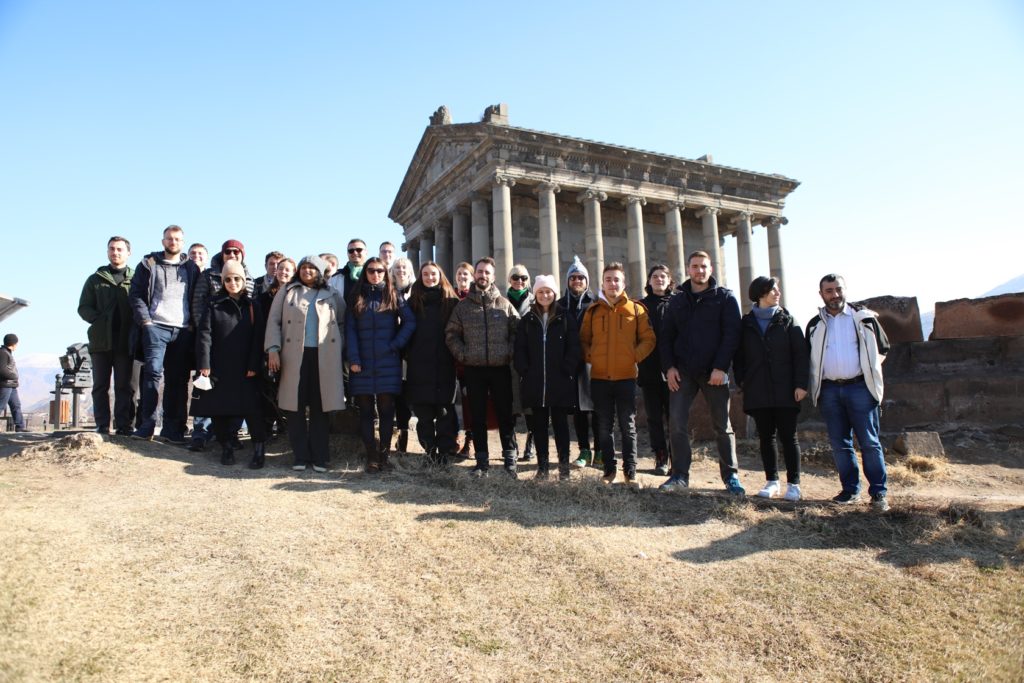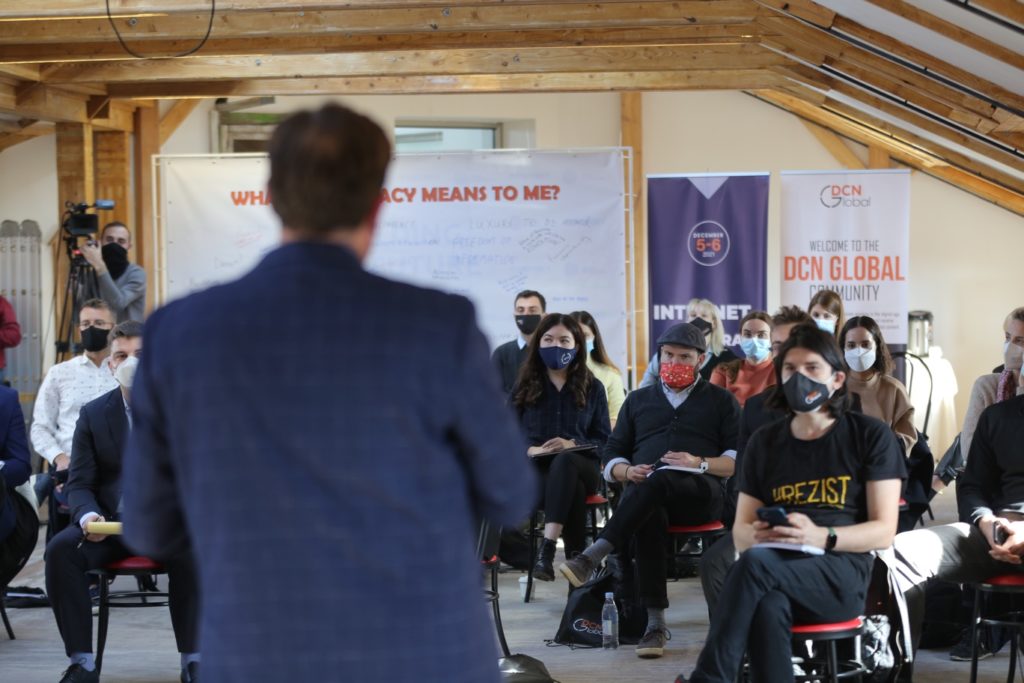-
What We Do
- WHERE WE WORK
-
About Us
 Welcome Message from Carol Jenkins
Welcome Message from Carol JenkinsFor more than 90 years, World Learning has equipped individuals and institutions to address the world’s most pressing problems. We believe that, working together with our partners, we can change this world for the better.
On my travels, I’ve had the opportunity to meet with many of those who have joined us in this mission. In Baghdad, we’ve trained more than 2,300 Iraqi youth who are already giving back at home. In London, our partners in the TAAP Initiative strongly believe that we are all responsible to practice inclusion. And in Vermont, our Experiment in International Living and School for International Training participants prove every day that they have the tools and the determination to change the world.
Please join us in our pursuit of a more peaceful and just world.
- Get Involved
Media Center > Story
How the Digital Communication Network is expanding its reach to combat disinformation
October 21, 2022
By Eric House

Widespread access to factual information is considered by many to be a cornerstone of democracy. And today, much of the world receives and learns about critical information digitally, through online publications, social media, or virtual forums. This shift to a digital world is often positive: it helps connect people around the world, increases access to educational resources and tools, and allows communities to mobilize around important causes more effectively.
But new digital platforms are being created every day with an ever-greater global reach. While many of these new outlets have sparked innovative ways to share stories, many have unleashed the spread of disinformation and efforts to delegitimize independent journalism with claims of “fake news.” Disinformation campaigns, when false information or propaganda is intentionally spread to mislead others, can have harmful — and far-reaching — effects in a digital world. The need for media professionals to actively promote media literacy to identify transparent media sources and accurate information is critically important in today’s world.
Leading the charge on this effort is the Digital Communication Network (DCN), a community of more than 7,000 digital communication professionals worldwide. Much like the internet itself, DCN is an ever-growing, interconnected source of information for like-minded professionals dedicated to building trust and transparency in digital communication. This involves combating disinformation and fostering open and honest media.
“The strength of DCN is in the diversity and flatness of the network … it makes it easier for participants to learn from one another’s responses, whether through webinars or trainings, online learning hubs or research exchanges …” U.S. Secretary of State Antony Blinken

DCN first formed under the Leaders Lead On-Demand program, a rapid-response, professional exchange program for emerging leaders worldwide. Sponsored and funded by the U.S. Department of State and managed by World Learning, Leaders Lead On-Demand supports the State Department’s ability to quickly respond to global events that affect U.S. foreign policy and diplomacy.
As these events unfold, Leaders Lead On-Demand’s exchanges provide the space and infrastructure for participants to problem-solve. Individuals and organizations are therefore able to find creative solutions to help their communities. These innovative exchanges also foster lasting partnerships as participants collaborate, share ideas and strategies, and enhance their professional skills.
Since 2015, DCN has brought together Leaders Lead On-Demand alumni who are media and communications professionals to share digital content and tools on how best to strengthen independent journalism and counter disinformation. Topical forums have been organized with subjects ranging from Media Literacy 360, Humor and Games for Social Good, Digital Storytelling for Impact, and more.
Over the past few years, the strength and scope of DCN has expanded. New partnerships with media, civic, tech, and educational organizations have added members to the community and diversified content topics based on new industry sectors.

In 2020, DCN and World Learning co-organized an events series titled “Ideas in Action — Digital Engagement” that included 83 virtual events focused on combating disinformation. Since then, DCN has produced dozens of webinars, workshops, and publications — all of which members are actively participating in or using. In 2019 alone, more than 6,000 experts participated in DCN events, and one forum in Greece included 400 journalists, 200 nongovernmental representatives, and five European universities in attendance.
Under the umbrella of DCN Global, new hubs are being created across the world as the network continues to expand beyond Europe and into Africa, South and East Asia, and Latin America. These hubs connect participants in their respective countries, enabling them to tackle country-specific concerns in innovative ways. For instance, a DCN hub in Armenia recently created podcasts to better engage participants through multimedia, with each episode tackling different topics related to disinformation. With training and guidance from DCN Global, these hubs serve as incubators for professionals seeking local support, information, and networking.
DCN’s platforms and tools are critical resources to also help policymakers and government officials advocate for open, transparent, and truthful media around the world. U.S. Secretary of State Antony Blinken has touted DCN’s approach to this goal.
“The strength of DCN is in the diversity and flatness of the network that’s been created,” Blinken said in June at the Media Summit of the Americas. “It doesn’t try to prescribe one single solution, but it makes it easier for participants to learn from one another’s responses, whether through webinars or trainings, online learning hubs or research exchanges, even games and apps.”
While combating disinformation is the goal, the spirit of exchange — of people, ideas, and information — also remains at the heart of DCN.
“At its core, DCN is an exchange network that unites people under a common goal. It’s been a long-standing commitment of organizations like World Learning and government agencies like the State Department to bring individuals together,” said World Learning’s Vice President of Global Programs Melissa Oppenheimer. “World Learning as an organization believes that human interactions, people-to-people contact, and deep conversations bring greater promise for all people, and DCN does exactly that.”
DCN is a dynamic way people are uniting to combat the harmful effects of disinformation in today’s society. The network uniquely harnesses the collective power of people exchanging ideas to in turn promote the open and accurate exchange of information worldwide. Through these efforts, the digital media landscape grows more transparent, enabling the world to better harness its potential for good.





